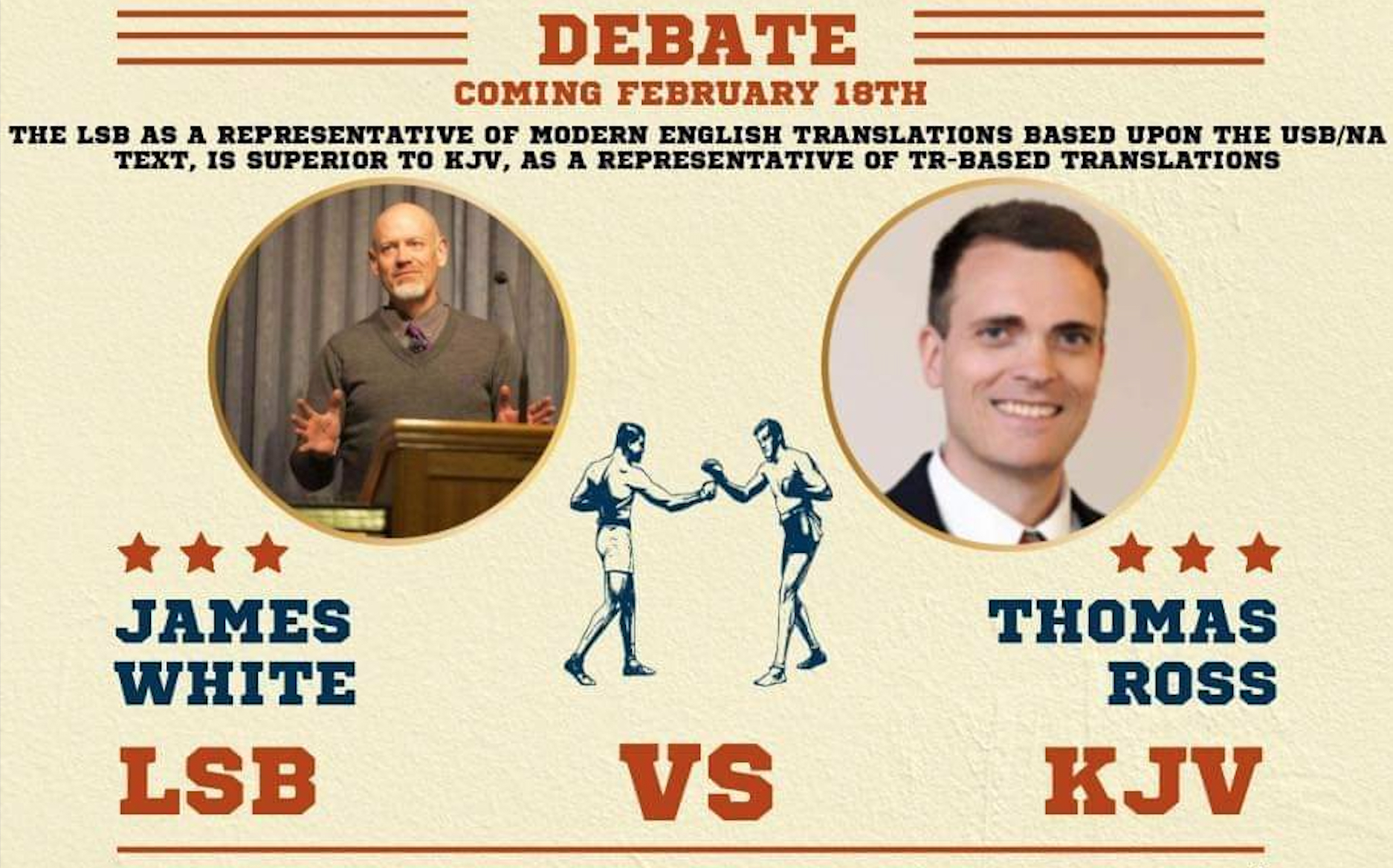Home » Posts tagged 'linguistics'
Tag Archives: linguistics
Is the King James Version Too Hard to Understand? (White 11)
The James White / Thomas Ross Preservation / King James Version Only debate examined the topic:
“The Legacy Standard Bible, as a representative of modern English translations based upon the UBS/NA text, is superior to the KJV, as a representative of TR-based Bible translations.”
In our debate, James White claimed that the Authorized, King James Version was too hard to understand. He also made this claim in his book The King James Only Controversy. Dr. James White’s argument has been employed by others as well, such as the Bob Jones University graduate Mark Ward. In my eleventh review video of the James White / Thomas Ross debate, I examine the KJV’s “Translators to the Reader” and point out that Dr. White confuses the KJV preface’s claim that their version would be understood by the common man with White’s own claim that the Bible must be in the language of the common man. To my knowledge, James White never acknowledges this important distinction.
The King James Version is Modern English
I also point out that the King James Bible is not in Old English, nor in Middle English, but in Modern English, and that scholars of the English language have dated the rise of modern English from the translation of the KJV:
Old English or Anglo-Saxon -1100
Transition Old English, or “Semi-Saxon” 1100-1200
Early Middle English, or “Early English” 1200-1300
Late Middle English 1300-1400
Early Modern English, “Tudor English” 1485-1611
Modern English 1611-onward
The English Of the King James Version
Is Easier than the Hebrew and Greek of the Inspired Old and New Testament
I then deal with the crucial question-which I have not seen addressed elsewhere by opponents of perfect preservation and the Textus Receptus, and which I wish defenders of preservation would address more frequently and with more completeness–of the objective standard of what “too hard” is for a translation, namely, the level of difficulty of the original Hebrew and Greek texts themselves. Is the King James Version harder English than the Hebrew of the Old Testament or the Greek of the New Testament? This crucial question is answered “no!”
The crucial question: Is the English of the King James Version significantly more complex and harder to understand English than the Greek of the New Testament was to the New Testament people of God or the Hebrew of the Old Testament was to Israel? The answer: No! The New Testament contains challenging Greek (Hebrews, Luke, Acts) as well as simple Greek (John, 1-3 John). Sometimes the New Testament contains really long sentences, such as Ephesians 1:3-14, which is all just one sentence in Greek. The Holy Ghost did not just dictate very short Greek sentences like “Jesus wept” (John 11:35) but also very long sentences, like Ephesians 1:3-14. God did not believe such sentences were too hard to understand, and both God and the Apostle Paul were happy for inspired epistles with such complex syntax to be sent to churches like that at Ephesus–congregations that were filled, not with highbrow urban elites, but with slaves, with poorly educated day laborers, with farmers, and with simple peasants who had believed on the Lord Jesus Christ.
Similarly, parts of the Hebrew prophetic and poetical books are much more challenging Hebrew than are many of the narrative sections of the Hebrew Bible. The Old Testament also contains some very long sentences. The whole chapter, Proverbs 2, is one sentence in Hebrew, for example.
There are also more rare or hard-to-recall words in the original language texts than there are in the English of the KJV.
Thus, evaluated by the objective standard of the literary level of the inspired Hebrew and Greek texts of Scripture, the King James Version is NOT too hard to understand. If you encounter people who argue that the KJV is too hard to understand, I would encourage you to challenge them to consider whether their claim is true based on the linguistic level of the original language texts of the Old and New Testaments.
Learn more by watching debate review video #11 at faithsaves.net, or watch the debate review on YouTube or Rumble, or use the embedded link below:
Please also check out the previous debate review blog posts here at What is Truth?
–TDR

Recent Comments